The forests of Amazonia are the birthplace of some unique plant species, such as the Brazil nut. Brazilian trees inhabit the tropical rain regions of Brazil, Bolivia, Peru, Colombia and the interesting fact is that it is not actually Brazil that is the largest producer of the delicious nuts, but Bolivia.
Besides being one of the longest-lived trees (estimated to be 500 to 700 years old), they are also one of the tallest, reaching 50 meters. Each tree annually produces about 300 pods, each of which weighs nearly 2.5 kg and contains about 20 nuts.
The Brazil nut is used to make a variety of dishes, in its raw or heat-treated state it is eaten like any other nut. They are extremely high in calories, but they also contain very important minerals, vitamins and antioxidants.
They carry a lot of selenium, which prevents cell damage, as well as magnesium and thiamine. The flavonoids contained in it fight against the development of malignant diseases.
As we said, this nut is quite caloric, as 100 grams of it equals 687 kcal and the fat content is 68-69 per 100. However, these fats are beneficial for the cardiovascular system, they do not accumulate and are not harmful, which means that they help reduce levels of bad LDL cholesterol and increase good HDL cholesterol. Despite that, the advice of experts is not to overdo the consumption of Brazil nuts.
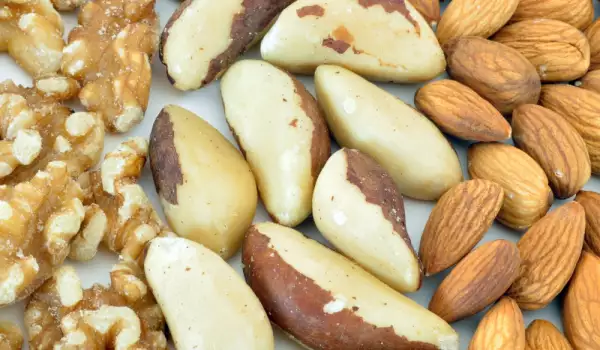
The selenium content is quite high, approximately 544 mg and this ingredient is believed to support the proper functioning of the cardiovascular system and prevent various diseases.
There are studies from the regions where this Brazil nut is grown, indicating that the population there rarely suffers from diseases of the heart system. Selenium also prevents the development of breast, prostate and other cancers.
It also supports the proper functioning of the thyroid gland and supports the immune system. But for children's health, the daily recommended dose is 45 mg and for adults 400 mg. In other words, 3-4 nuts per day are enough for an adult.
For this reason, you should not consume too much of it and eat such nuts constantly and an overdose causes brittle and white nails, hair loss, rash, irritability, stomach pains and others.
These nuts also contain a very important amino acid called methionine. It is found only in the Brazil nut and plays an essential role in the fight against various chronic diseases, in cirrhosis of the liver, protects against premature aging and others.
Brazil nut is very tasty and healthy and for this reason it is good to enjoy its taste from time to time, but in no case to overdo it. It is quite caloric and rich in selenium, which, however, becomes toxic in high doses.
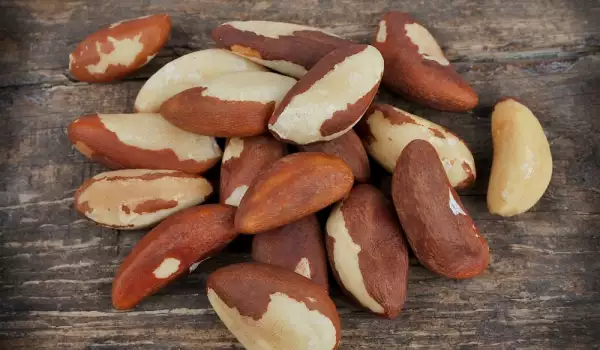






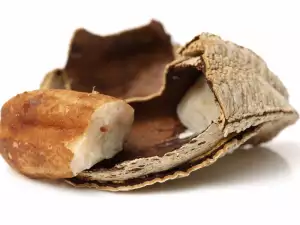

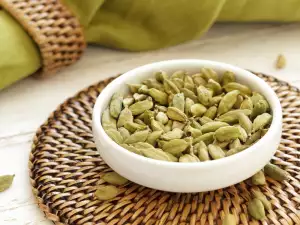
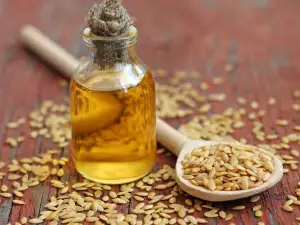

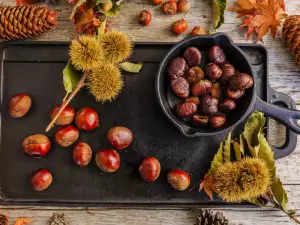
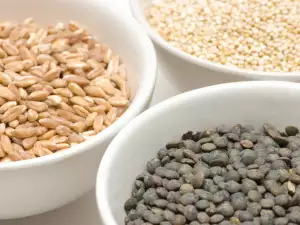

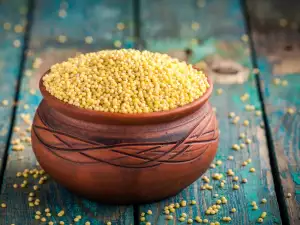




Comments